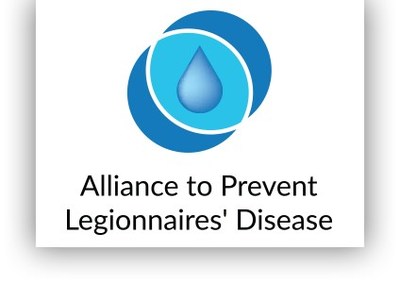Subject: AVO
Experts: Community Water Testing Needed to Reduce Legionella Threat
WASHINGTON, June 8, 2020 /PRNewswire/ -- Community water supplies nationwide must do more to slow the spread of bacteria that cause the deadly waterborne Legionnaires' disease, engineering and technical experts warn in a new article published in ASHRAE Journal, a prominent national engineering and standards publication.
"The call for stronger federal regulations on community water systems is even more urgent with COVID-19 economic shutdowns," argues Daryn Cline, Technology and Science Director for the Alliance to Prevent Legionnaires' Disease (APLD) and co-author of the article. "Bacteria buildup in water utility distribution systems can occur during water stagnation caused by lower water consumption, and then are released during increased water flow demand as economic activity restarts."
Legionnaires' disease is a form of pneumonia caused by inhaling or aspirating small water droplets containing Legionella bacteria, which builds in community water systems and spreads to people through fountains, showers, faucets, humidifiers and other water use equipment and appliances.
"We're also concerned that people contracting Legionnaires' disease from their water systems may be misdiagnosed as COVID-19 patients, which makes prevention efforts in our community water systems even more critical," added Cline.
Current U.S. Environmental Protection Agency regulations do not require community water systems to test directly for Legionella in their systems. Because it is not an enforceable requirement, water systems do not have to monitor for or take action to minimize Legionella. Treatments that virtually eliminate many microbes are expected to also remove or neutralize Legionella, but key research indicates that it does not happen.
"Typically, after Legionnaires' disease outbreaks, water suppliers state that the water 'meets all EPA regulations.' This may be true, but that does not mean that the water is Legionella-free," authors Cline and Sarah Ferrari write.
They point to three key national studies of hundreds of water samples from water storage tanks, tap water, and cooling towers ? all along the water pipeline after leaving the community facility to reaching the end user. The studies found collectively that one-third of drinking water samples tested positive for Legionella pneumophila bacteria, including more than one-quarter positive for the most lethal strain of bacteria responsible for 90 percent of Legionnaires' cases.
The authors recommendation that water systems monitor and test for Legionella bacteria at the water plant and along the distribution system will complement the work of states like Illinois, Louisiana and Pennsylvania that have improved state regulations to require stronger antimicrobial treatment throughout the water system, from source to tap.
"A focus on efforts to better control pathogens in the public water supply upstream by strengthening USEPA requirements is the rational approach to addressing the increased threat of waterborne pathogenic bacteria-related disease cases in the future," they write.
The authors' full article, along with many other important resources on Legionnaires' disease, is available at the APLD website as the first report listed here: https://preventlegionnaires.org/category/pdf-report/. A list of resources in a Legionnaires' 101 toolkit is below, including recent guidance from APLD urging steps to be taken to reduce Legionnaires' risk as the country reopens from the coronavirus shutdown.
ABOUT APLD: LEGIONNAIRES' 101
The Alliance to Prevent Legionnaires' Disease (APLD) is a national nonprofit organization formed to educate public officials about the science and investments needed to promote a more comprehensive, proactive approach to fighting waterborne disease.
Legionnaires' disease draws national headlines with each outbreak, causing concern in communities with each case that results in death or serious illness. The Alliance to Prevent Legionnaires' Disease created this brief toolkit of our best research and arguments to help you understand the basics of this waterborne disease and how to prevent it from developing and spreading.
- April 2020 APLD COVID-19 shutdown and Legionnaires' resource guide: https://preventlegionnaires.org/pdf-report/apld-resource-guide/
- Legionnaires' 101: What it is, how it develops, who's vulnerable, how to respond: https://preventlegionnaires.org/the-basics/
- Why outbreaks grab headlines but are only a small fraction of the problem: https://preventlegionnaires.org/did-you-know/
- Frequently asked questions on Legionnaires' disease: https://preventlegionnaires.org/general-faqs/
- Case studies, from its origins to today: https://preventlegionnaires.org/case-studies/
- Improved infrastructure, better water testing and treatment and full outbreak investigations are the roadmap to preventing this disease: https://preventlegionnaires.org/our-mission/our-solutions/
- About the Alliance to Prevent Legionnaires' Disease: https://preventlegionnaires.org/our-mission/
- Our partners: https://preventlegionnaires.org/partners-experts/
SOURCE Alliance to Prevent Legionnaires' Disease
These press releases may also interest you
|
News published on and distributed by:




